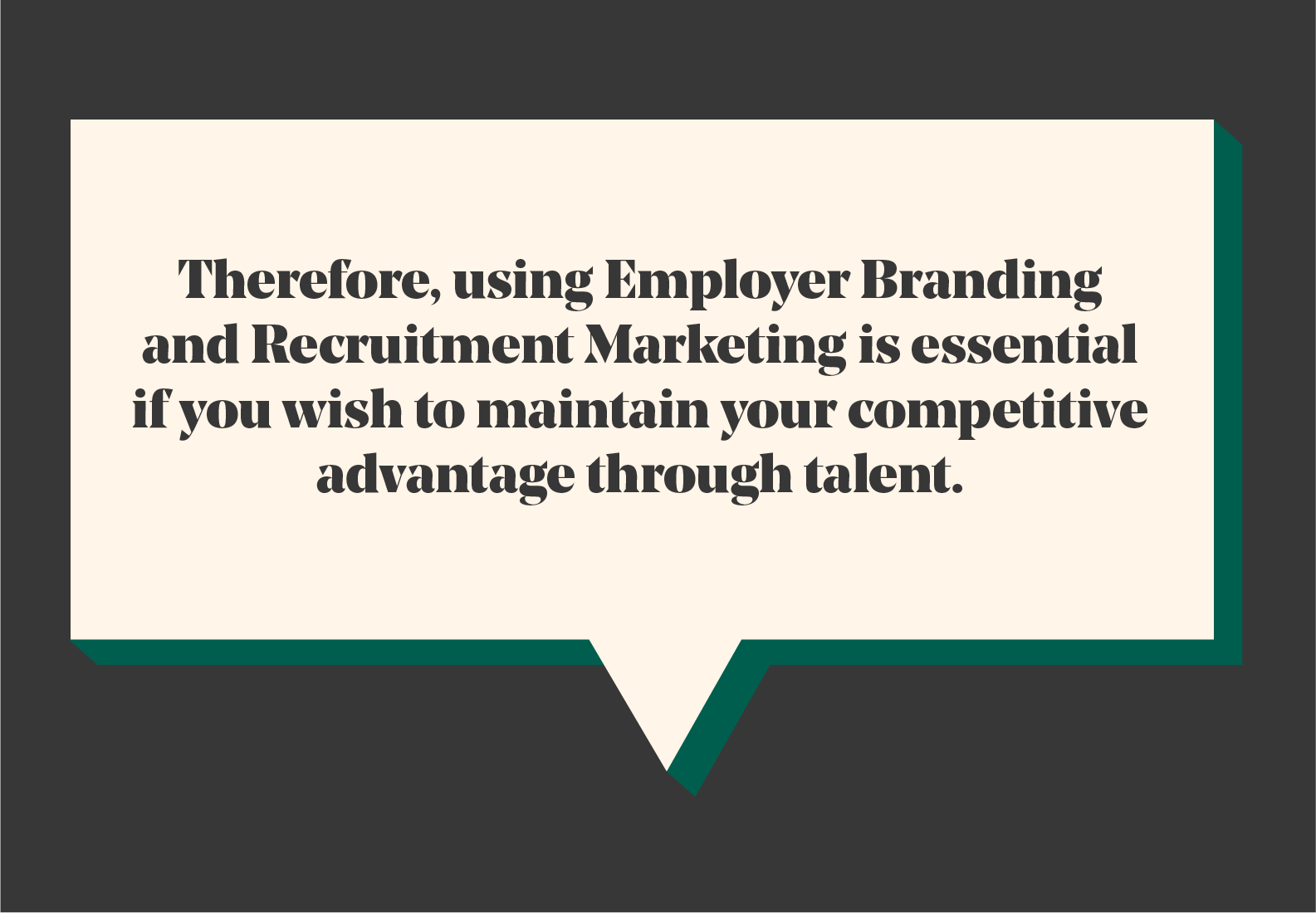When you build an impactful employer brand, you use your organizational culture and the values you provide to your employees as a way to build a reputation. Translating the benefits of those intro metrics depends on what you choose to focus on: building a following, connecting with potential talents or receiving job applications in general?
Using social media for employer branding provides an easy way to calculate Return On Investment (ROI) plus a sure way to get noticed as 79% of job seekers use social media during their job search. You can run a branding campaign, communicating your EVP to your defined target audience and evaluate the results based on the campaign metrics.
In addition, it is possible to measure the benefits by looking at employee satisfaction, the enhanced quality of job applications and candidate experience in general as well as the reviews and ratings on employer review and career sites, such as Glassdoor or kununu.








